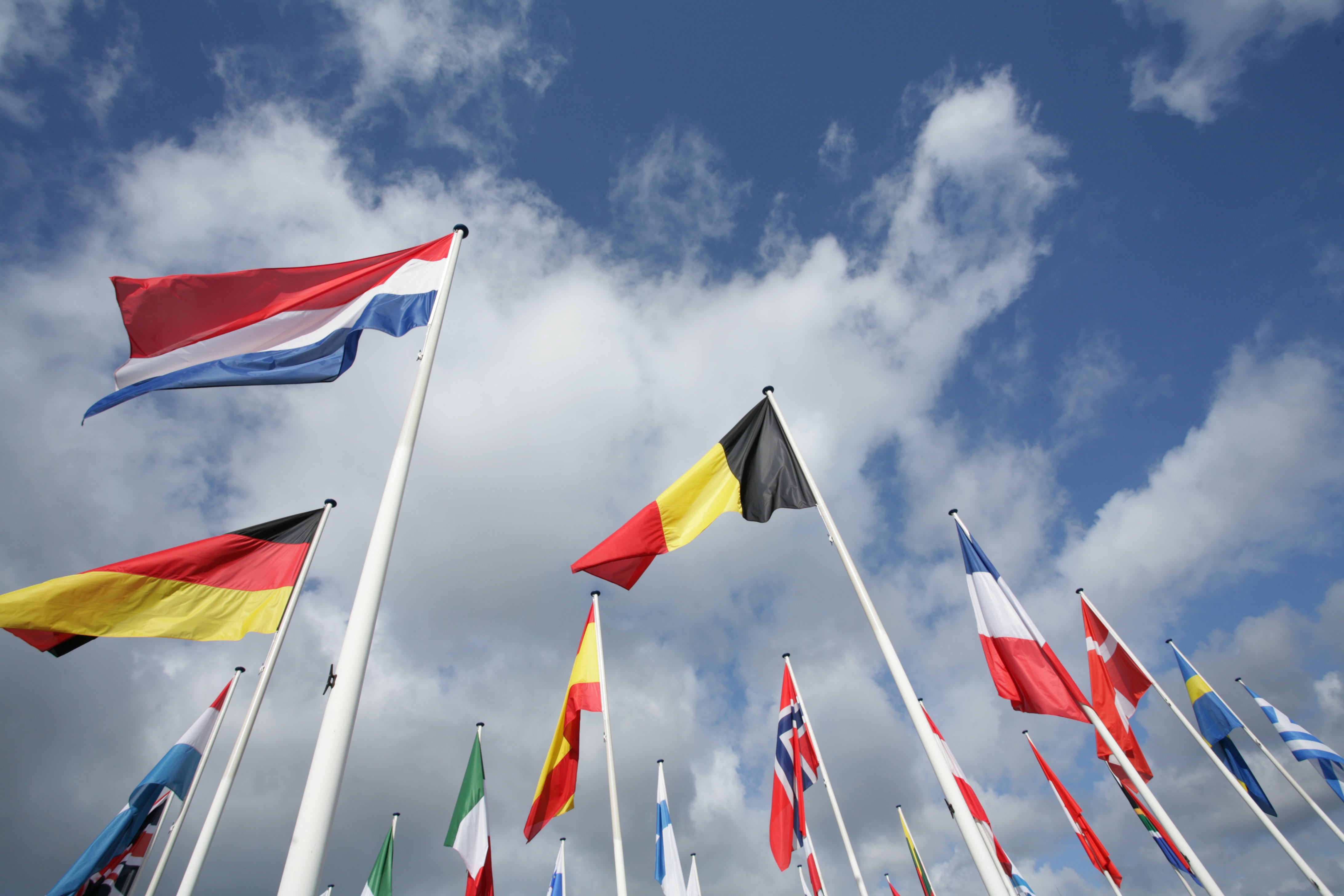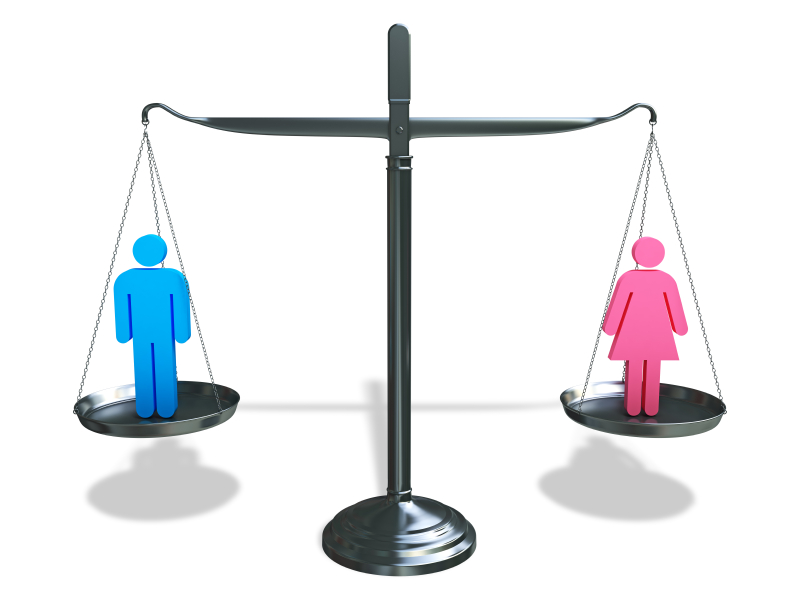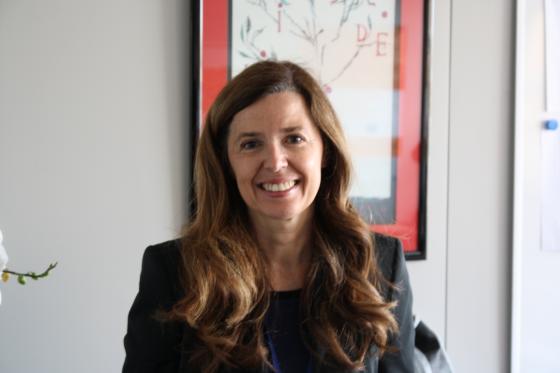A call for binding measures
Luisa Prista of the European Commission does not want to “fix” female researchers. It is the institutions and research system that need to be changed, she believes. Her goal is that the Member States will be mobilized to care about gender equality in research.
The trend is the same all over Europe: Women comprise a majority of the students and about half of the doctoral research fellows in most of the countries. But although the percentage of women in European research has been high for a long time, only a few of them reach the very top – even today.
“There has been a significant change in the gender equality work with the new Framework Programme for Research,” explains Luisa Prista, head of the Scientific Culture and Gender Issues unit, which is responsible for gender equality and the integration of gender issues in science at the European Commission’s Directorate-General for Research.
She and her colleagues are responsible implementing the action lines on women in science for the Seventh Framework Programme as well as for drawing up policy proposals in this area.
“Our previous strategy was to implement measures that were designed to ‘fix’ the women. The aim was to develop tools that would encourage women to choose, stay and progress in scientific careers. We focused on building networks for women, establishing mentor programmes and promoting role models,” she says.
“But then we realized that the problem lies rather in the institutions and the research system. Therefore, we switched to a strategy that would ‘fix’ the administrations instead. Our goal now is to encourage structural changes at the research institutions.”
New partners
The new strategy has led to a change in working methods at the European Commission. It is no longer only researchers who must become involved in gender equality efforts; it is also the human resources managers, the decision-makers at the research institutions. But how do we reach these individuals? That depends largely on the commitment from the individual Member States, Prista believes.
“We in the Commission cannot focus on individual institutions in Europe to bring about change. But we can launch pilot projects and show what is possible. After that, it is up to Member States to follow up the initiatives and get their institutions to implement tools that promote gender equality.”
But changing structures cannot be accomplished with just a measure or two.
“Structural change is about changing the culture of organizations, and these are long and costly processes. It involves many people in different departments within the organization. Most of the money we allocate to the gender equality area must be used to promote these structural changes,” explains Prista.

The Europe 2020 strategy
The Member States that participate in EU research cooperation have various policies and practices with regard to gender equality in research. And there is not much Prista and her colleagues can do about those who do not care enough about gender equality.
“Our role today is quite limited. We can give examples of best practice, benchmark and coordinate policies and hope that we can be a catalyst for their work. But we want to increase our impact, to act as a multiplier and mobilise the maximum of actors, universities, and research institutions. The idea is to launch a policy initiative at the European level that not only encourages, but also supports the Member States to work on promoting women in science and sets the requirements for future monitoring and assessment.”
Prista sees potential in the European Commission’s proposal for the new strategy for jobs and growth of the union, known as Europe 2020. This document will follow up the Lisbon Strategy of 2000 and identify the driving forces underlying economic growth in the next 10 years. Innovation, education and research are key components of the strategy.
“Our work is about developing the capacity of European research. This fits well with the new strategy. For example, if we want to increase the number of students in the natural sciences and engineering, we need to address the gender dimension. The same is true if our goal is to strengthen innovation and enhance the quality of European research. It would be absurd to pick the talents only from half of the population in a moment where new skills to face the current scientific challenges are so much needed.”
Failed strategy
According to Prista, the Lisbon Strategy failed with regard to women in science because the Member States were not required to report on developments in this area.
“It is essential in relation to the new strategy that the Member States are required to report on the work they have done on gender equality in science. If they are not required to report on their progress (or lack of progress) in this area, there is a risk that this work will not be taken seriously.”
There is a recurring theme in the gender equality projects funded under the Seventh Framework Programme. These projects range from compiling examples of best practice and measures for promoting gender equality to direct implementation of these. In this way the European Commission intends to show how structural change can be carried out in practice.
Practising Gender Equality in Science (PRAGES) was one of the first projects to receive funding under the Seventh Framework Programme in the area of women in science. Completed in December 2009, the project compared various strategies being used to increase the proportion of women in decision-making bodies at European research institutions. The project also created a database of measures in use and presented a report with recommendations for guidelines that the institutions should adopt.

Reaching out to research leaders
Marina Marchetti works with Prista at the European Commission. She hopes that the research institutions will use the results from the PRAGES project in their work, and points out that two pilot projects have been launched which will continue the work where the PRAGES project left off (WHIST and Diversity projects).
Attention has been paid also to the awareness raising among research decision makers:
“With the genSET and GENDERA projects we want to generate debate on gender equality in science among the leaders at the research institutions. Through these efforts we intend to raise the awareness of policymakers in the sector,” says Marchetti.
“We want the research leaders to understand that the legislation on gender equality is in place, as are the tools for promoting gender equality. The only thing that remains now is to implement them,” she continues.
Marchetti says they have recently assessed the applications submitted in response to a call for proposals with a January deadline. The call was aimed at getting a few individual institutions to make a concerted effort to implement structural changes. By autumn it will be clear how successful this initiative has been.
Research content
Prista hopes that critical debate will give people insight into the importance of better research leadership that promotes gender equality. However, the goal is not only to promote more women in top-level positions. She and her colleagues also want that gender is included in the content of research.
“The European Commission has two main objectives for its work on gender equality in research. The first is to promote more women in senior positions. The second is to integrate gender perspectives into research,” explains Prista.
“Our aim is not just to modernize the universities. Our real objective is to enhance the quality of European research. We know that to achieve this we must have balanced participation by both men and women in research, as well as an awareness of the gender dimensions of the research content.”
“Our new slogan, which we have taken from science historian Londa Schiebinger, is ‘fixing the knowledge’. This is what we need to do now. To ‘fix the knowledge’ means to incorporate the gender dimension into all knowledge that is produced, and to use this knowledge. Then we will have reached our goal. This is the only way to ensure we have excellence in science.”
Translated by Connie Stultz.
The Scientific Culture and Gender Issues unit at the European Commission’s Directorate-General for Research is responsible for promoting women in science under the Seventh Framework Programme for Research and Technological Development.
The unit reports to Directorate L – Science, Economy and Society at the Directorate-General for Research, which has responsibility for the Socio-economic Sciences and Humanities (SSH) and the Science in Society (SIS) programmes.
Three action lines in the Science in Society programme are designed to impact the social conditions for science and research. Action line 2, “strengthening potential, broadening horizons”, encompasses projects on gender and gender equality in science and recruitment to research.
This initiative gives priority to funding for gender research, including the integration of gender perspectives in all fields of research, as well as to promoting women in science and encouraging participation by female researchers in scientific decision-making bodies.
See
• The framework programmes are the EU’s most important funding instrument for research and development activities in Europe. The current Seventh Framework Programme for Research and Technological Development (7RP) was launched on 1 January 2007 for a seven-year period and will conclude in 2013.
• Norway has participated in the EU’s framework programmes since the start of the fourth programme in 1994.
• One of the programme’s stated objectives is to integrate a gender perspective into all fields of research and to actively promote participation by women in research and development activities.
• The Seventh Framework Programme (7RP) is based on the principles laid down in the Lisbon Strategy, which states that the EU will become the most dynamic, competitive knowledge-based economy in the world by 2010, and on the three percent research investment targets agreed to by the Member States.
• This spring the European Commission’s proposal for an economic strategy for the EU, known as Europe 2020, is being deliberated. This document will follow up the Lisbon Strategy of 2000 and identify the driving forces underlying economic growth in the next 10 years. Innovation, education and research are key components of the strategy.
